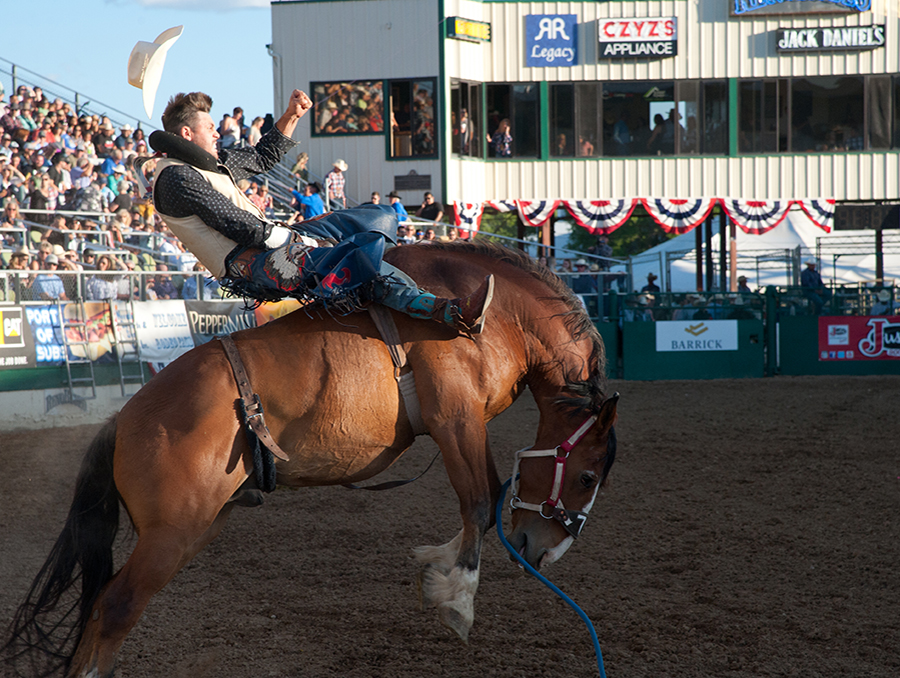University of Nevada, Reno Sports Medicine Fellowship Incorporates Rodeo Training for Broader Clinical Experience

Medical training programs continually seek innovative approaches to prepare future physicians for diverse clinical environments. The University of Nevada, Reno (UNR) School of Medicine’s Sports Medicine Fellowship stands out by offering fellows the opportunity to gain hands-on experience in the unique setting of professional rodeo events. This distinctive rotation not only broadens the clinical skill set of aspiring sports medicine physicians but also emphasizes the importance of adaptability when treating athletes across various disciplines.
Expanding Traditional Sports Medicine Training Through Rodeo Experience
While many sports medicine fellows spend their rotations on football sidelines or basketball sidelines, UNR Med’s program ventures outside these conventional settings. Fellows participate in rodeo coverage during major Northern Nevada events, including the renowned Reno Rodeo. This approach exposes them to a different athlete population, injury mechanisms, and treatment challenges, enriching their overall clinical competence.
The integration of rodeo coverage into the fellowship curriculum was pioneered to provide comprehensive training that prepares physicians for a wide range of sports-related injuries. Dr. Daniel “Jake” Harrington and Dr. William “Bo” Cates, both fellowship fellows, have shared insights into their experiences, highlighting how this rotation enhances their medical expertise.
Why Rodeo Training Is a Valuable Component of Fellowship Education
Rodeo athletes, comprising cowboys and cowgirls competing in events like bull riding, bareback riding, and steer wrestling, face injury risks unlike those in traditional team sports. Their injuries often involve traumatic falls, animal-related trauma, and stress-induced musculoskeletal issues. Fellows learn to recognize and manage these injuries, sharpening their ability to treat complex cases involving high-impact trauma.
Furthermore, rodeo athletes typically operate independently of coaching staff and medical teams, requiring clinicians to provide immediate, autonomous assessment and advice. This experience cultivates decision-making skills and fosters communication strategies tailored to athletes who decide whether to continue competing after an injury.
Training for Safety and Effective Communication in Unique Sporting Environments
The rodeo setting demands high situational awareness and teamwork. Fellows review literature on rodeo-specific injuries and collaborate with experienced medical personnel, including EMTs and athletic trainers. They learn the importance of staying alert to dynamic environments, such as bulls and broncos moving within the arena, and the necessity for cohesive team communication.
Dr. Cates, a former football and baseball player, remarked on the biomechanical differences encountered in rodeo athletes. Treating these athletes requires understanding how their bodies respond to the intense stress of riding dangerous animals, which entails asking specific questions about their movements and injuries. These insights allow fellows to tailor treatment plans effectively, fostering a nuanced understanding of biomechanics outside traditional sports.
Adapting Medical Approaches for Unique Athletic Demands
One of the core lessons from rodeo rotations is the importance of flexibility and athlete-centered care. Fellows must adapt their clinical reasoning to accommodate the autonomy of rodeo athletes and their willingness to continue competing after injury. This approach emphasizes informed decision-making, gauging physical readiness, and providing appropriate advice for each individual’s safety and aspirations.
The Impact of Rodeo Training on Future Sports Medicine Physicians
Participation in rodeo coverage equips fellows with skills that extend beyond the rodeo arena. They develop a broader perspective on injury management, especially for athletes involved in extreme sports and unconventional activities. The experience underscores the significance of adaptability, environmental awareness, and cultural competence when treating diverse athlete populations.
Many fellows highlight how this rotation reinforces the value of a flexible, athlete-centered approach that considers the athlete’s environment, goals, and physical demands. Dr. Harrington notes that such experiences are rare in traditional sports medicine training and represent a unique opportunity to stand out professionally.
Advancing Sports Medicine Through Innovative Rotations
UNR Med’s incorporation of rodeo training exemplifies a forward-thinking approach to medical education. It broadens fellows’ clinical exposure, enhances their competency in managing complex, high-impact injuries, and prepares them for a variety of athletic environments.
For aspiring sports medicine physicians seeking comprehensive, innovative training, programs like UNR’s offer valuable opportunities. Exploring related programs, such as the Sports Medicine Fellowship at UNR Med, can provide further insight into how such experiences shape expert clinicians aligned with the evolving needs of athletes today.
If you are interested in advancing your medical career with diverse, real-world training experiences, consider how a program that includes unconventional rotations like rodeo coverage can expand your clinical expertise and professional opportunities.
Learn more about UNR Med’s innovative sports medicine fellowship and determine if this approach suits your educational and career goals by visiting the program page.

